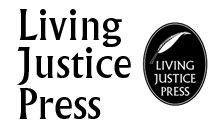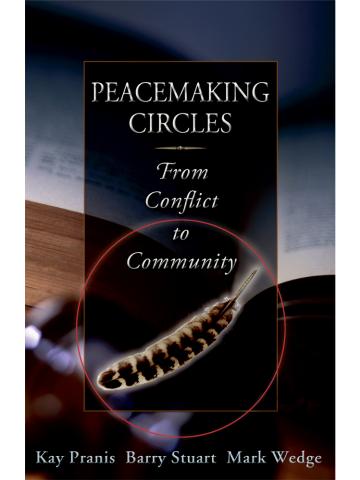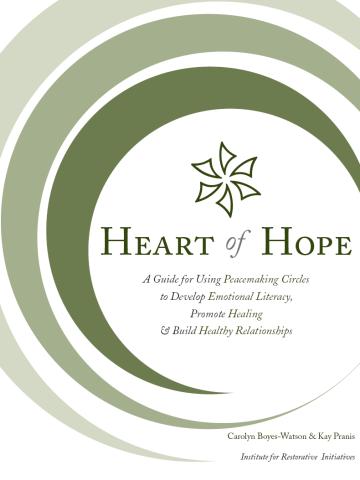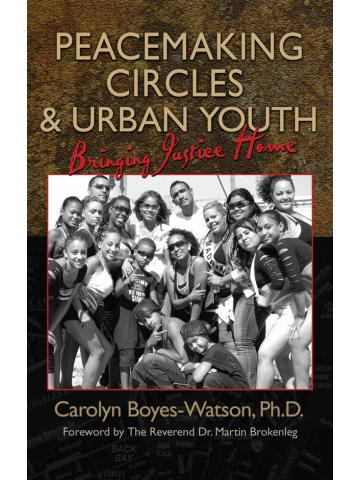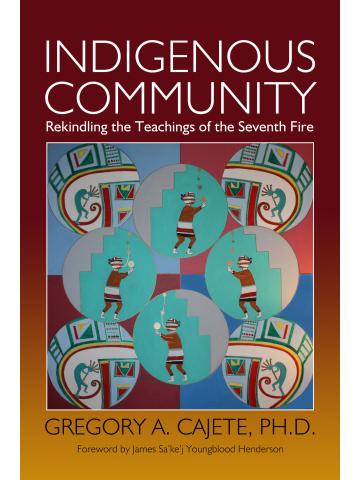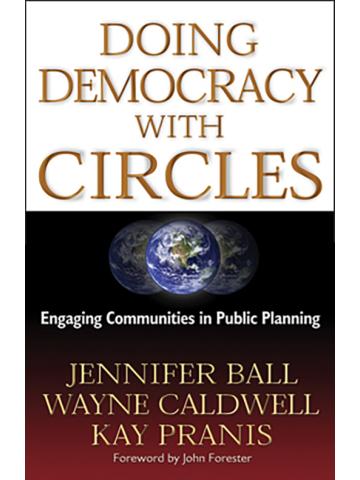
*****IF YOU WISH TO ORDER HARD COPIES OF OUR BOOKS, PLEASE VISIT https://livingjusticepress.org*****
Two planners and a Circle trainer explore how Circles are bringing democratic values to community decision-making.
Planning what will happen in a community involves bringing together many different perspectives, so that planners can make informed decisions. Whether the concern is land use, the environment, or social issues, the planning process provides a framework for discussing the complex issues involved with change. The goal is to make decisions that lead to a desirable future—one that everyone can embrace. The authors of Doing Democracy with Circles have found Circles to be very effective for discussing public planning issues, and they draw on their personal experiences in a vivid story of true community participation in dealing with common issues.
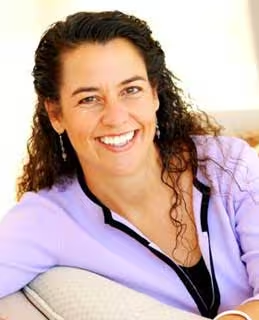
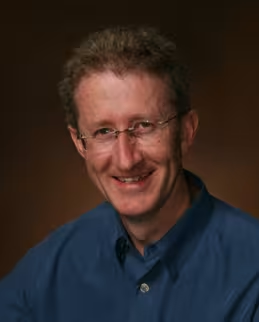
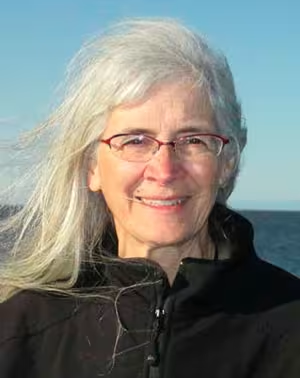
Kay Pranis is a national leader in restorative justice, specializing in peacemaking Circles. She served as the Restorative Justice Planner for the Minnesota Department of Corrections from 1994 to 2003. Before that, she worked six years as the director of research services at the Citizen’s Council on Crime and Justice. She has written and presented papers on peacemaking Circles and restorative justice in the United States, Canada, Australia, Brazil, and Japan. Since 1998, Kay has conducted Circle trainings in a diverse range of communities—from schools to prisons to workplaces to churches, from rural farm towns in Minnesota to Chicago’s South Side.
Praise for Doing Democracy with Circles
John Forester
Cornell University and author ofPlanning in the Face of Power
This little book will challenge you to get more experience than you have, to appreciate 'traditional' ideas in fresh and innovative ways, and to try new approaches and techniques as well. You’ll find it all deceptively simple! What, after all, could be more simple than sitting in a circle and listening? What could be more profound than sitting in a circle with others who care as much as you do—about a question, an issue, a threat, or an opportunity—and then listening together as you try to explore what really matters, what really counts, what really can happen now?
This book presents no cure-all technique and no quick fixes … it presents an approach, a social technology, a do-able, understandable, non-threatening way that planners can learn along with concerned community members about issues that concern them. The “circle” approach provides more path than technique, more instructive and enlightening ritual than method, more a way to bridge understanding and action than a narrow problem-solving gimmick—all because circles encourage not just voice but listening, not just initial opinions but deeper insights, not just 'what I want' but 'what we can do together.' … I can only welcome this striking and useful little book providing thoughtful, practical alternatives to traditional processes of public participation.
Ian Wight
City Planning, University of Manitoba
Here is the definitive guide on circles with planners in mind. Primal and potent in equal measure, the circle is the basis for all good conversation. It is well nigh indispensable today for those practicing planning as collective communicative action—whereby common, meaning-filled places get made….
"This is a timely call for planners to consciously “circle” their praxis ... to realize fuller, fairer processes—and to facilitate a “democratics” that can transcend mere politics and contribute to a more just society."
Phoebe Kilby
Vice President, Sympoetica, Woodstock, Virginia
For me, the circle process was a very beneficial learning experience. I developed a whole new approach to my mediation skills that I have been able to use in a wide range of everyday situations.
Howard Vogel
Hamline University School of Law and Dispute Resolution Institute, St. Paul, MN
The planning profession needs more creative and effective ways to engage the public in planning for their communities. Doing Democracy with Circles provides not just a new method but a new philosophy about creating community collaboratively. I have experimented with circles in several planning projects, including a comprehensive plan, developing revisions to a historic preservation ordinance, and resolving a controversy over a private development proposal. I used elements of circles as well as a more pure form of circle. All worked better than any other type of public process I have tried.
Circles are a place where democracy occasionally breaks out. Thanks to the authors and the whole gang at Living Justice Press for putting together this wonderful book! It will be a great catalyst to enlivening a conversation that is much needed in thousands of neighborhoods across this land.
Heidi Hoerig
Office of Research Opportunities, McGill University
This text is a wonderful introduction to circles for planners. The stories … are inspiring and help show various directions for possible applications. The text provides a thorough treatment and covers every major area that needs to be addressed. It is very readable and tremendously inspiring—a much-needed tool.
John Gillespie
Community Member
The circle process I was involved in related to water quality issues. Through the circle process, I gained insight into how people who hold different perspectives view issues and why they react to them as they do. I was never able to develop this understanding, despite several years of discussions, and I probably never would have without the benefit of learning and participating in the circle process."
